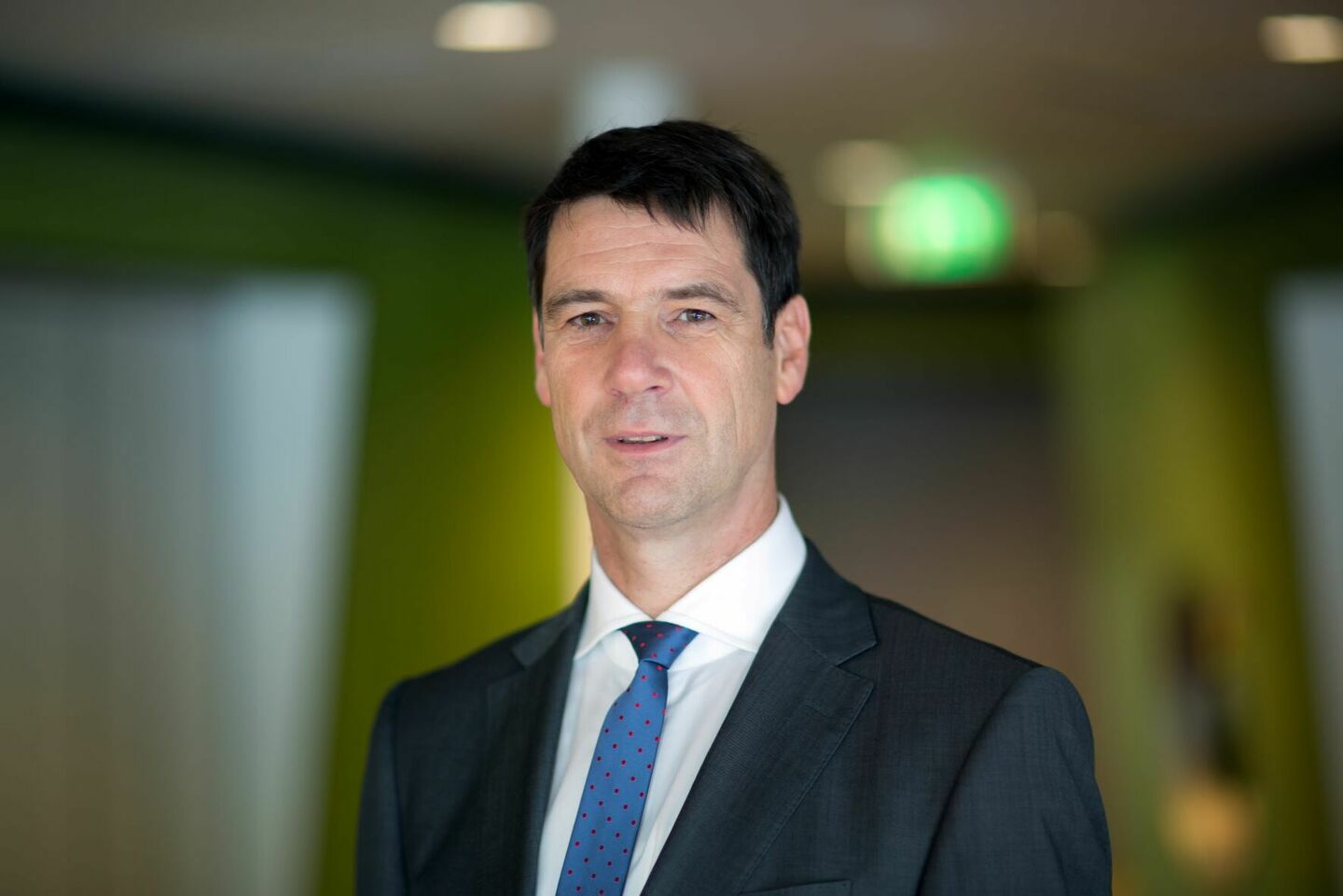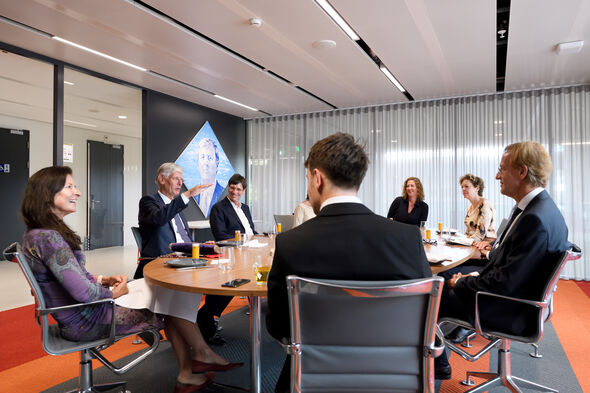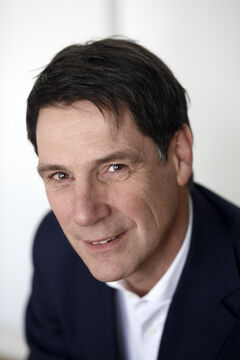
“The current number of students is perfect for TU/e”
Economist Coen Teulings was supervising TU/e for eight years
Economist Coen Teulings was a member of TU/e’s Supervisory Board for eight years. Last month he stepped down. Eight hectic years, he says, in which the university experienced major changes. Speaking about one of these – the huge growth in intake – he says, “This must stop. TU/e’s current size is exactly right for a top-flight university.” That TU/e must find its way back to the top of the international rankings, and rapidly, is essential, he believes.
Two moments in Teulings’ eight-year membership of the Supervisory Board are etched in his memory. “The presentation of the results achieved by the introduction of the Bachelor College in 2012. This was given by the then Rector Magnificus Hans van Duijn, and the results were fantastic: intake was up, student dropout was down, greater satisfaction among students and improved student success rates. But I also recall the presentation given by his successor, Frank Baaijens, that revealed the consequences of this awesome expansion and that alerted us to the need to introduce a ceiling on student numbers for some programs.”
According to Teulings (1958), who is a Distinguished University Professor at Utrecht University, with a student body of about 14,000, TU/e is exactly the same size as other international top-flight universities. “We shouldn’t (in this interview, Teulings consistently uses ‘we’ when he talks about TU/e, ed.) get much bigger than this, because in recent years we’ve already seen that the system in Eindhoven is straining at the seams. That society and in particular industry are asking something different of the university when it comes to size is understandable, but perhaps it would be wise to take a closer look sometime at other options, such as the scope offered by Fontys.”
Foreign intake
Intake from abroad – which is seeing year-on-year growth on bachelor’s programs, as it is elsewhere - Teulings labels as a very positive development. “Not only for TU/e, but also for the Netherlands in general it is very important that we continue to attract top-flight talent from abroad. I am a strong supporter of the international classroom (30 percent of the student population coming from abroad, ed.) because it brings together insights from other cultures. This is something that a company like ASML, for example, is pursuing keenly. Likewise, the university could make a greater investment in this union of Dutch and international students. It starts in the lecture theaters and should then spread within the study associations.”
To the question whether foreign intake should be better regulated in future, possibly by setting a cap on this group of students, Teulings replies, “It is true that at present universities have few instruments with which to channel this intake, so I can imagine this being useful. But a decision like this one must never be taken lightly; on every occasion good arguments must be given. After all, as I’ve said, eventually this intake of foreign students benefits the whole of the Netherlands.”
Boring task
On the Supervisory Board, Teulings was for years the chair of the audit committee. And in this role, he would plow through the university’s budget every year. He refers to this as quite a boring task, “because in all those years the university presented a balanced budget and at the end of the year we’d reach the conclusion that yet again a sum totaling some five million euros had not been spent. Why? Because the funds reserved for appointing new staff had not been spent in their entirety by the departments.”
Surely not good news, because it means that each year vacancies are not being filled? “That’s right and the recruitment of top-flight talent is only going to become more important for universities in the coming years, and the competition for staff is now happening at a global level. Talent-seeking really must become a top priority for the departmental deans, as well as for individual professors.” That the position of the Netherlands, and thus Eindhoven, is advantageous in this respect, is a given for Teulings. “The Netherlands is a very pleasant country in which to live: stable, good education system and good healthcare, and as a foreigner you can manage easily because nearly everyone speaks English. Although personally, I do think that a foreign academic should endeavor to master the Dutch language fairly quickly.”
Rankings
Success in the recruitment of talent is often linked to a university’s reputation. In this respect, by contrast, Teulings is worried about TU/e’s decline in a number of important international rankings. Thus it was recently announced that TU/e has dropped out of the top 200 in the Times ranking. “That we have fallen nearly a hundred places in this ranking in seven years’ time is something that concerns me. I would say it is important that we discover the reasons for this, and quickly.” Does he think it might be related to our ever closer cooperation with industry, which leads to more applied research being done, and which in turn leads to a fall in TU/e’s citation score? “I wouldn’t go as far as to say that, and I’m still seeing a lot of research at TU/e that is reasonably fundamental.”
But either way, more government investment in fundamental research is essential, says economist Teulings. “A future cabinet really must make sure this happens and among other things it means coming up with that extra billion that higher education has been long asking for. Compared to countries like Germany, France and Switzerland, the Netherlands really is lagging behind in its funding of fundamental research. And industry must play its role too.”
Attention must be paid rapidly to the education crisis that is now happening in primary and secondary education. This is greater and more important than the housing crisis.
Building on this, Teulings says that attention must also be paid rapidly to the education crisis that is now happening in primary and secondary education. “This is greater and more important than the housing crisis that everyone is now talking about. For years now we’ve been seeing a decline in the Pisa scores (school performance by 15-year-olds, ed.) achieved in the Netherlands and this is the foundation on which education is built. If things are going awry there, it has consequences for the whole of Dutch society, in terms of prosperity and well-being (think of health and criminality). And, naturally, higher education also experiences a strong ripple effect. I think that Jeroen Dijsselbloem is indeed correct in saying that the introduction in 1985 of the HOS policy memorandum (Revision of the Education Salary Structure, ed.) is the root cause of the decline in the appeal of teaching as a profession. Action must be taken to address this, and that means a structural increase in teaching salaries.”
Elite sport
In conclusion, Teulings talks about the difficult decisions that must be taken at TU/e. “And this involves investing in those areas in which you excel. Which runs counter to Dutch thinking, a mentality that is also present at TU/e. Highly focused on the breadth, much less so on those who excel. Compare this to what the NOC*NSF has done for elite sport in the Netherlands in recent years: we are very good in public recreational sport, but we have also sunk extra funding into elite sport. And this well-directed investment once again earned a whole host of Olympic medals in Japan this summer. Likewise, at Dutch universities we also need multiple peaks on our broad plateau. Some years ago José van Dijck and Wim van Saarloos, former presidents of the KNAW, clearly charted for the Netherlands where the opportunities lie.”
As a result of this, we will more often see someone with a tenure track having to leave the institution, says Teulings. “That person may be a good academic but if scaling the heights is just beyond their reach, we must part company. This is not bad and it creates clarity. But we must ensure that anyone in this situation finds a good next step and we must maintain our relationship with them. Provide good aftercare.”
A person may be a good academic but if scaling the heights is just beyond their reach, we must part company.
Teulings looks back on his eight Eindhoven years with a great deal of pleasure. “I already knew the city and was a regular visitor. Over the years I’ve seen Eindhoven change for the better.” Last month his position as chair of the supervisory board of Kunstmuseum Den Haag also came to an end. “Yes, that happened at the same time and it took a bit of adjusting to.” Looking back, which role did he enjoy more? “That’s impossible to say, but of course TU/e is quite a bit bigger and it’s fair to say it is a more professional organization than the Kunstmuseum, but both roles were dear to me. I left both institutions with a heavy heart.”
Coen Teulings (1958) is a Distinguished Professor at Utrecht University as of January 1, 2018. Before that he was professor of Economics at the University of Cambridge (2013-2019) and part-time Professor of Economics at the University of Amsterdam (2004-2017). He served seven years as president of CPB, the Netherlands Bureau for Economic Policy Analysis, an influential financial think-tank of the Dutch Government. He was CEO of SEO Economic Research in Amsterdam (2004-2006), Professor of Economics at the Erasmus University Rotterdam and director of the Tinbergen Institute (1998-2004).
He was also a member of several Supervisory Boards, like the one for TU/e (2013-2021) and Kunstmuseum Den Haag (2013-2021) and he has written many publications, books and articles for Dutch and international journals.



Discussion